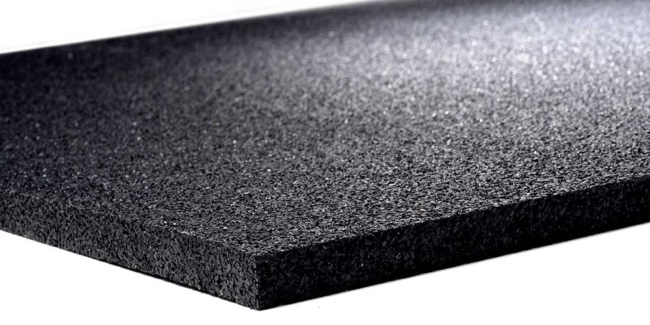Sound Insulation

M20 Rubber Wall Insulation
In today’s constantly connected and noisy world, carving out peaceful, quiet spaces is more critical than ever. From the drone of traffic and industrial machinery to everyday disturbances from neighbours, excess noise can disrupt our homes and workplaces. That’s where effective sound insulation becomes essential — providing a barrier that blocks, absorbs, and dampens unwanted noise.
Whether you're soundproofing a home office, a commercial space, or an entire building, the right insulation material can significantly reduce noise transmission, enhance privacy, and improve comfort.
Understanding Sound Insulation
Sound insulation, also known as soundproofing, involves the use of specialist materials and construction techniques to limit sound transmission between rooms or from the outside. It is designed to prevent sound waves from travelling through walls, ceilings, floors, and structural elements — creating quieter, more acoustically balanced spaces.
High-quality rubber sound insulation materials, such as M20 Rubber, are engineered for superior acoustic performance, making them ideal for residential, commercial, and industrial applications.
Product Enquiry
To learn more about our sound insulation solutions or to speak with our technical experts, please complete the enquiry form or call us directly on +44 (0)1384 252555.
Product Enquiry
For information on Sound Insulation please complete the following quick enquiry or call us on +44(0)1384 252555.
Product Specification & Key Characteristics
Our M20 Rubber is specially manufactured for acoustic insulation applications and provides excellent sound-damping performance:
- Colour: Anthracite
- Density: <90KG/M³
- Fire Propagation Index: <12
- Operating Temperature: -30°C to 100ºC
- Thickness Range: 1mm – 100mm (laminated options available for increased thickness)
- Documentation: Full technical specifications are available on request or through our online download portal.
The Principles of Sound Insulation
To understand how sound insulation materials like M20 Rubber work, it's important to consider three core principles:
- Absorption – Acoustic materials absorb sound waves and convert them into low-grade heat, reducing noise reflections and echoes.
- Damping – Rubber insulation materials reduce vibration, which in turn decreases the transmission of sound through solid structures.
- Mass – Heavier materials provide greater resistance to sound penetration. The mass of M20 Rubber makes it particularly effective at blocking airborne noise.
Combining these properties, our M20 Rubber delivers superior performance across a wide frequency range.
Why Use Sound Insulation?
The benefits of soundproofing go beyond simple noise reduction. Here’s why adding sound insulation to your space is a wise decision:
Noise Reduction
Whether you're in a busy urban area or a noisy workplace, reducing sound intrusion is essential for well-being and productivity. M20 Rubber helps block external and internal sound sources for quieter living and working environments.
Enhanced Privacy
In offices, studios, or shared residential buildings, acoustic privacy is essential. Sound insulation prevents sound leakage, ensuring conversations and activities remain private.
The Importance of Sound Insulation
Adding sound insulation to your property brings long-term advantages:
- Noise Reduction – Stops disruptive noise from entering or escaping a room.
- Privacy Protection – Ensures confidential conversations and activities stay private.
- Improved Sleep – Reduces noise disturbances that affect sleep quality and mental health.
- Workplace Productivity – Creates a quieter environment for better concentration and focus.
- Thermal Efficiency – Many acoustic insulation products, including M20 Rubber, offer thermal resistance, which helps lower heating and cooling costs.
Common Sound Insulation Materials and Techniques
There are a variety of materials and installation techniques designed to optimise sound insulation in different environments:
- Rubber Wall Insulation, such as M20 Rubber, offers high mass and flexibility.
- Fibreglass & Mineral Wool – Used in walls and ceilings to absorb sound.
- Mass Loaded Vinyl (MLV) – A dense barrier material for walls, ceilings, and floors.
- Acoustic Panels – Mounted on walls to reduce echo in rooms.
- Green Glue & Acoustic Sealants – Used in conjunction with other materials to seal gaps.
- Double Stud Walls – Creating a Decoupled Wall System for Maximum Sound Isolation.
- Resilient Channels – To break the transmission path of sound vibrations.
Our technical team can recommend the ideal combination of these materials based on your project requirements.
Conclusion
Sound insulation plays a vital role in enhancing comfort, privacy, and acoustic quality in modern living and working environments. Whether you're trying to block outside traffic, muffle internal conversations, or create a focused workspace, using effective materials like M20 Rubber can make a significant difference.
Please contact us using the form below or by calling us on +44(0)1384 252555.





















